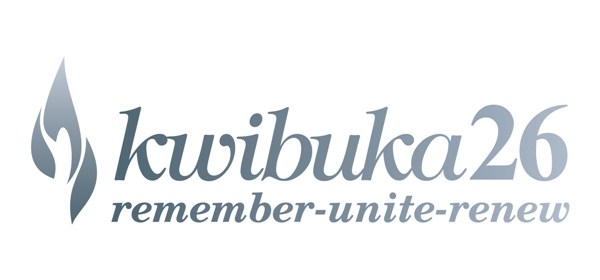
By BIZIMANA Jean Damascène*
France continued to provide military support to Sindikubwabo and Kambanda government, which was used to exterminate the Tutsi. The UN Security Council evaded its mandate to assist in Rwanda, while the International Committee of the Red Cross (ICRC)exposed the role of international community in abandoning Rwanda and spreading rumours about genocide.
1. The delegation of Rwandan military was hosted by senior French military officials for talks on provision of arms
Colonel Sébastien Ntahobari, the Military attaché to the Rwandan embassy in France, Paris, was repeatedly hosted by General Jean Pierre Huchon and Colonel Dominique Delort in Paris. They discussed military assistance with General Jean Pierre Huchon who was in charge of military cooperation.
Lt. Col. Cyprien Kayumba, who was in charge of military logistics at the Rwandan Ministry of Defense, also went to Paris twice, in late April 1994, and afterwards he continued to follow up on weapons that France had agreed to supply to Rwanda.
All of this had ignored the fact that during the massacre of Tutsi since April 7, 1994, government forces took the lead before interahamwe to attack Tutsi who had taken refuge in schools, hospitals, churches and other government buildings. The soldiers used grenades, guns and ammunition, and later Interahamwe killed with traditional weapons including clubs and machetes.
The French Ministry of Cooperation led by Michel Roussin, was in charge of seeking and dispensing the support to the criminal government.
General Huchon and General Quesnot closely monitored military assistance to Rwanda, and all was based on President Mitterrand’s decision. Some French officials said they “did not know that the massacre of Tutsi was genocide.”
This was a lie because the French had known since April 7, 1994 that genocide was taking place in Rwanda but they denied it. General Christian Quesnot admitted this before the French Parliamentary Commission (Parliamentary information mission). He said that “Since April 6, 1994, after Habyarimana’s death, the Rwandan problem has been closely monitored by military and political officials in France and that it was clear that the killings were not the same as the previous ones”.
It is clear that General Quesnot was aware that the killing was genocide. Mitterrand, Hubert Vedrine and Alain Juppe argued that the massacre of Tutsi in Rwanda was an ethnic war, they said that members from both ethnics were killing each other. On April 28, 1994, Alain Juppe said: “War and killings continue in that country ravaged by ethnic war”.
Constantly, President Mitterrand did not denounce the Genocide against the Tutsi, and said that in Rwanda everyone was killing everyone.
Apart from supporting the criminal government, France continued to support Habyarimana’s family, including his wife Agathe Kanziga, who was among the organizers and implementers of genocide.
2. The criminal government continued to kill and mobilize Interahamwe to accelerate the killings
The Prime Minister Jean Kambanda spoke on Radio Rwanda urging the Interahamwe to accelerate the killings. “We have men, ammunitions, a united government, a united army and we have to win. Everyone must be armed; it is the government’s priority to ensure there are enough weapons even if this prevents the importation of other goods”. Jean Kambanda speaking from Kibuye.
On this date, Radio Rwanda rebroadcasted the full speech of May 3rd, 1994 by Jean Kambanda at Kibuye which requested the acceleration of genocide in the country and kibuye particularly.
3. The UN Security Council has renounced its mandate to maintain peace and to assist during the Genocide.
On May 6, 1994, UN non-permanent member states, Spain, New Zealand, Argentina, and the Czech Republic proposed a plan to strengthen military presence in Rwanda. However, some countries with a permanent seat in the UN Security Council rejected the idea but suggested that Rwanda’s problems should be deliberated by the African Union Organisation (OUA). The Secretary-General of the United Nations, Boutros-Boutros Ghali, wrote to the Egyptian President Hosni Mubarak, who was supposed to be the president of the organization.
Mubarak wrote to the OUA Secretary General, Salim Salim, and requested that African countries should find troops to send to Rwanda. Salim Salim told President Mubarak that Africa could not cope with the kind of massacres which was in Rwanda, rather the United Nations had the power to use political force and seek necessary support for action in Rwanda. He added that whenever such problems arose, the proposed method was used to solve them.
4. The ICRC criticized the behaviour of international community for abandoning Rwanda and decided to help refugees where possible.
During the first week of May, ICRC personnel from Kigali, Byumba, Gisenyi, Kabgayi and Kibungo tried to take care of the injured and patients who had been threatened by Interahamwe and soldiers.
The head of ICRC, Cornelio Sommaruga, spoke to Philippe Gaillard, who represented ICRC in Rwanda. He published an article in the International Herald Tribune denouncing media and governments that did not report on the massacre of Tutsi, saying that all countries were implicated.
Gaillard sent an assistance to about 30,000 refugees who had fled the massacre in Gitarama, but they were, surrounded by Interahamwe who were about to kill them. Refugees were provided with basic support. The Interahamwe continued to kidnap and kill some of the refugees, as well as raping women.
CONCLUSION
In early May 1994 Tutsi were still killed, in regions controlled by the criminal government forces. The troops were constantly supported by the French government, and yet they knew that genocide was taking place in Rwanda. The support to the military of criminal government accelerated the genocide and prompted the killings of some Tutsi who would have survived. (End).
Dr BIZIMANA Jean Damascène, Executive Secretary National Commission for the Fight Against Genocide (CNLG)
